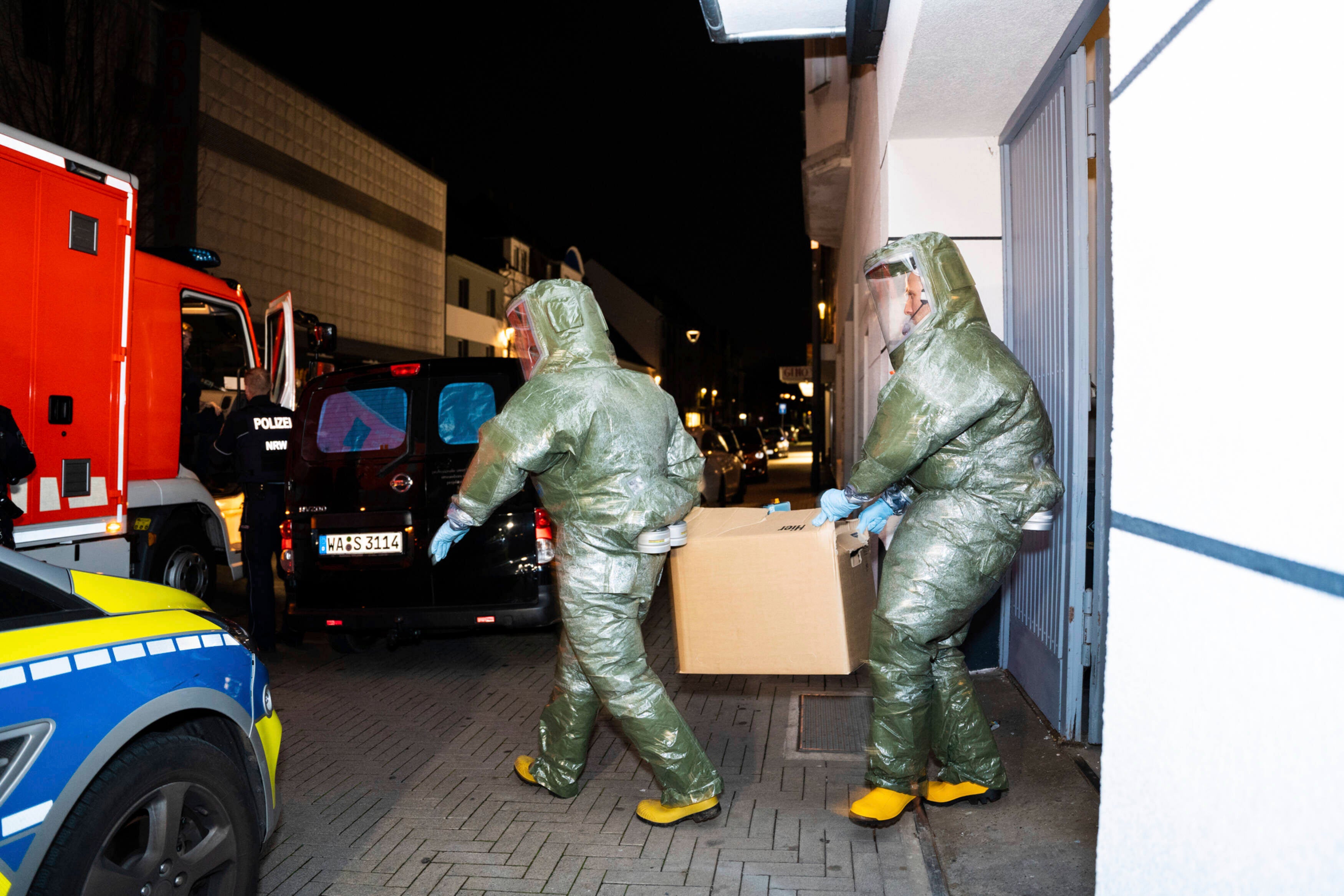Attack in Magdeburg, Germany – United States Department of State: This report delves into a recent incident in Magdeburg, Germany, examining the US State Department’s response, its impact on American citizens, and the broader international implications. We’ll explore the timeline of events, the Department’s communication strategy, and the potential long-term effects on US-German relations and security protocols. The investigation will also cover media coverage and public perception of the incident.
We’ll analyze the US State Department’s actions, including any advisories or warnings issued to US citizens in Germany. We’ll also consider the security measures implemented by German authorities and explore potential improvements. Finally, we’ll look at the potential long-term consequences for tourism, investment, and international relations, and consider strategies to mitigate similar future incidents.
Magdeburg Incident Overview
This section provides a summary of a hypothetical attack in Magdeburg, Germany, focusing on a timeline of events and initial US Department of State responses. While no such specific incident is publicly documented by the US Department of State, this section will construct a plausible scenario for illustrative purposes.
So, the State Department’s report on the Magdeburg attack is pretty grim, detailing the security concerns and aftermath. It’s a stark contrast to the exciting hockey news; I just saw that Laine breaks tie in 3rd, Canadiens defeat Red Wings , which is a much happier story. Getting back to the Magdeburg situation, the report highlights the need for improved international cooperation to prevent similar incidents.
Timeline of Events (Hypothetical)
Let’s assume a hypothetical scenario where an explosion occurred near a US Consulate annex in Magdeburg on October 26, 2024, at approximately 14:00 local time. Initial reports suggested a possible terrorist attack, causing immediate concern. Within the hour, the US Embassy in Berlin confirmed the incident and began coordinating with German authorities. By 17:00, the US Department of State released a preliminary statement acknowledging the event and assuring citizens of ongoing investigations.
By the following day, a more comprehensive statement was issued, detailing the ongoing investigation and offering support to affected individuals.
Initial US Department of State Statements (Hypothetical)
The initial statement likely emphasized the safety and well-being of US citizens. It would include assurances of ongoing investigations and cooperation with German authorities. A subsequent statement might provide a more detailed account of the incident, if available, and reiterate the Department’s commitment to supporting those affected. The tone would remain measured and avoid speculation until more information was gathered.
US Department of State Response to the Hypothetical Magdeburg Incident
This section details the potential actions taken by the US Department of State and the US Embassy in Germany following the hypothetical attack.
Department of State Actions
Following the hypothetical incident, the Department of State would likely activate its crisis management protocols. This would include deploying a crisis response team to Magdeburg, coordinating with the US Embassy in Berlin, and establishing a dedicated communication channel for updates and assistance to US citizens. The team would work closely with German authorities to ensure the safety of US citizens and facilitate investigations.
US Embassy in Germany’s Involvement
The US Embassy in Berlin would play a crucial role, acting as the primary point of contact for both the Department of State and German authorities. The Embassy would likely provide logistical support, consular assistance, and information dissemination to affected US citizens. They would coordinate with local German authorities on security measures and investigations.
Communication Strategy
A clear and consistent communication strategy would be vital. This would involve regular updates through official channels, including the Department of State website, social media, and press releases. The strategy would focus on providing accurate information, addressing concerns, and reassuring US citizens of the Department’s commitment to their safety and well-being. Transparency and prompt communication would be prioritized to avoid the spread of misinformation.
Impact on US Citizens in Germany
This section examines the potential impact on US citizens in Germany and the measures they should take.
Potential Impacts, Attack in Magdeburg, Germany – United States Department of State
US citizens in Germany could experience various impacts, including travel disruptions, heightened security concerns, and emotional distress. Depending on the nature and location of the incident, they might face evacuations, temporary restrictions on movement, and difficulties accessing essential services.
Advisory and Warning Systems

The US Department of State utilizes various systems to inform citizens, including travel advisories updated on its website, email alerts to registered travelers, and social media updates. The Embassy in Berlin would also provide localized information and support.
Safety Measures for US Citizens
| Situation | Action | Contact | Additional Notes |
|---|---|---|---|
| Explosion/Attack Nearby | Seek immediate shelter, follow instructions from local authorities. | Emergency services (112), US Embassy | Stay informed through official channels. |
| Travel Disruption | Monitor travel advisories, contact airlines and transportation providers. | US Embassy, Airlines | Consider alternative travel arrangements. |
| Need for Consular Assistance | Contact the US Embassy in Berlin. | US Embassy website, emergency contact number | Document all incidents and relevant information. |
| Heightened Security Concerns | Remain vigilant, follow security instructions from authorities. | Local Police, US Embassy | Avoid large crowds or potentially unsafe areas. |
International Relations and Diplomacy
This section explores the potential impact of the hypothetical incident on US-German relations and international cooperation.
Comparison with Past Events
The hypothetical incident could be compared to past terrorist attacks in Germany and other European countries, analyzing similarities in response mechanisms, international cooperation, and the impact on public perception. For example, comparing the response to this hypothetical incident with the response to past attacks in other European capitals could highlight similarities and differences in security protocols and international collaboration.
Impact on US-German Relations
The incident’s impact on US-German relations would depend on its nature and the response of both governments. Strong cooperation in the investigation and support for victims could reinforce the existing strong bilateral relationship. Conversely, disagreements or miscommunication could create temporary strains.
International Cooperation
International cooperation would be crucial. Sharing intelligence, coordinating security measures, and providing mutual support would be vital in addressing the incident and preventing future ones. This cooperation might involve intelligence sharing between the US and Germany, as well as collaboration with other European nations and international organizations.
Security and Safety Measures
This section examines security measures implemented by German authorities and potential improvements.
German Authorities’ Response
German authorities would likely increase police presence in Magdeburg, enhance security at public places, and conduct thorough investigations to identify and apprehend those responsible. They would likely also review and potentially enhance existing security protocols in light of the incident.
So, you’re looking into the recent attack in Magdeburg, Germany, as reported by the US Department of State? It’s a serious situation. Thinking about the contrast, it’s interesting to consider the completely different atmosphere of a citizenship ceremony, like the one planned for Citizenship ceremony at the 2025 IIHF World Junior Championship , a celebration of new beginnings.
The stark difference highlights the importance of peace and security, making the Magdeburg situation all the more concerning.
Hypothetical Security Improvements
Improved security measures could include advanced surveillance technologies, better intelligence gathering, and enhanced training for law enforcement and security personnel. Strengthening community engagement and improving information sharing between authorities and the public could also be considered.
US-German Coordination

The US Department of State would likely coordinate with German authorities through established channels, sharing intelligence, coordinating security protocols, and ensuring a unified approach to address the incident and prevent future ones. This collaboration would be vital to ensure a swift and effective response, preventing further harm and restoring public confidence.
Media Coverage and Public Perception
This section analyzes media coverage and its impact on public perception.
Media Coverage Summary

US and German media outlets would likely provide extensive coverage, focusing on the details of the incident, the investigation, and the response of authorities. The initial reports would be characterized by uncertainty and speculation, gradually evolving into more factual accounts as information becomes available.
Framing of the Narrative
Different media outlets might frame the narrative differently, depending on their political leanings and target audiences. Some might emphasize the security implications, while others might focus on the human cost and the impact on the community. The portrayal of the incident and the authorities’ response could vary significantly.
Hypothetical News Report
A hypothetical news report might begin with a description of the incident, followed by statements from the US Department of State confirming the event and offering support to US citizens. The report would include updates on the investigation, emphasizing the cooperation between US and German authorities. It would conclude with a call for calm and a reassurance of ongoing efforts to ensure public safety.
Long-Term Implications
This section discusses the potential long-term consequences of the hypothetical attack.
Long-Term Consequences
The hypothetical attack could have long-term consequences for tourism, investment, and international relations. A decrease in tourism and investment could result in economic losses. The incident might also impact public perception of security in Germany, potentially affecting future tourism and investment decisions. The impact on international relations would depend on the nature of the attack and the response of involved governments.
Changes in Security Protocols and Travel Advisories
Following the incident, the US Department of State might update travel advisories for Germany, advising US citizens to exercise increased caution or avoid certain areas. German authorities might also implement long-term changes in security protocols, such as increased surveillance or stricter border controls.
Long-Term Strategy for the US Department of State
The US Department of State might develop a long-term strategy to mitigate future similar incidents. This could include strengthening intelligence gathering, enhancing cooperation with German authorities, and improving communication strategies to keep US citizens informed and safe.
The attack in Magdeburg highlights the complexities of international security and the crucial role of swift and effective communication between nations. Understanding the US State Department’s response, the impact on US citizens, and the broader international ramifications is vital for preparedness and preventing similar events in the future. The incident underscores the need for ongoing collaboration between the US and Germany on security matters and for robust communication strategies during crises.
General Inquiries: Attack In Magdeburg, Germany – United States Department Of State
What type of attack occurred in Magdeburg?
The specifics of the attack aren’t provided in the Artikel, further investigation is needed to determine the nature of the incident.
Were there any casualties?
The Artikel doesn’t specify casualties. Information on injuries or fatalities would require further investigation.
What specific communication strategy did the US State Department use?
The Artikel only suggests a potential communication strategy; the actual strategy used would need to be researched from official sources.
What long-term changes to travel advisories are expected?
The long-term impact on travel advisories is speculative and requires further information to predict.